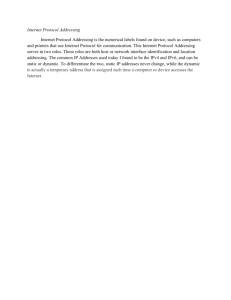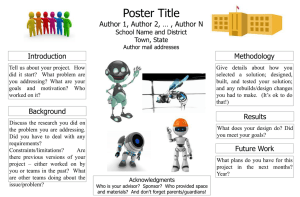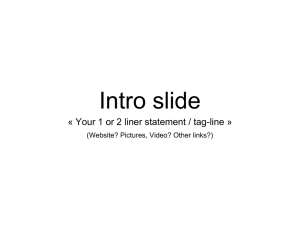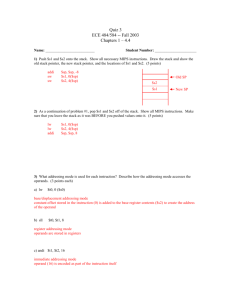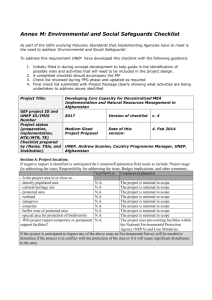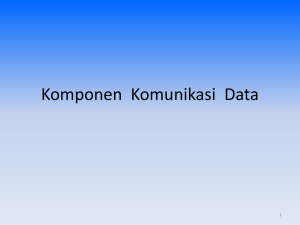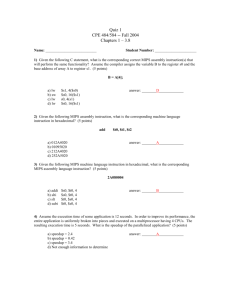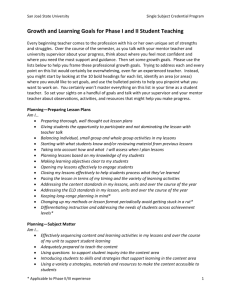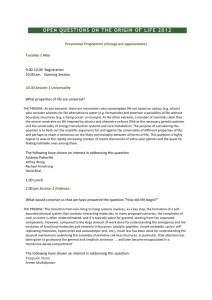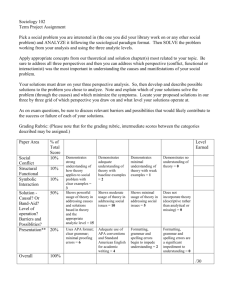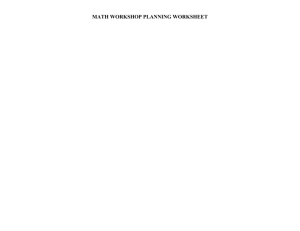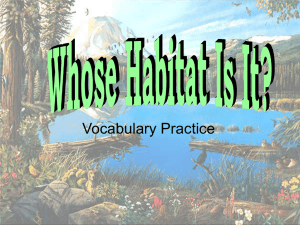Alison Wray`s logic check sheet
advertisement
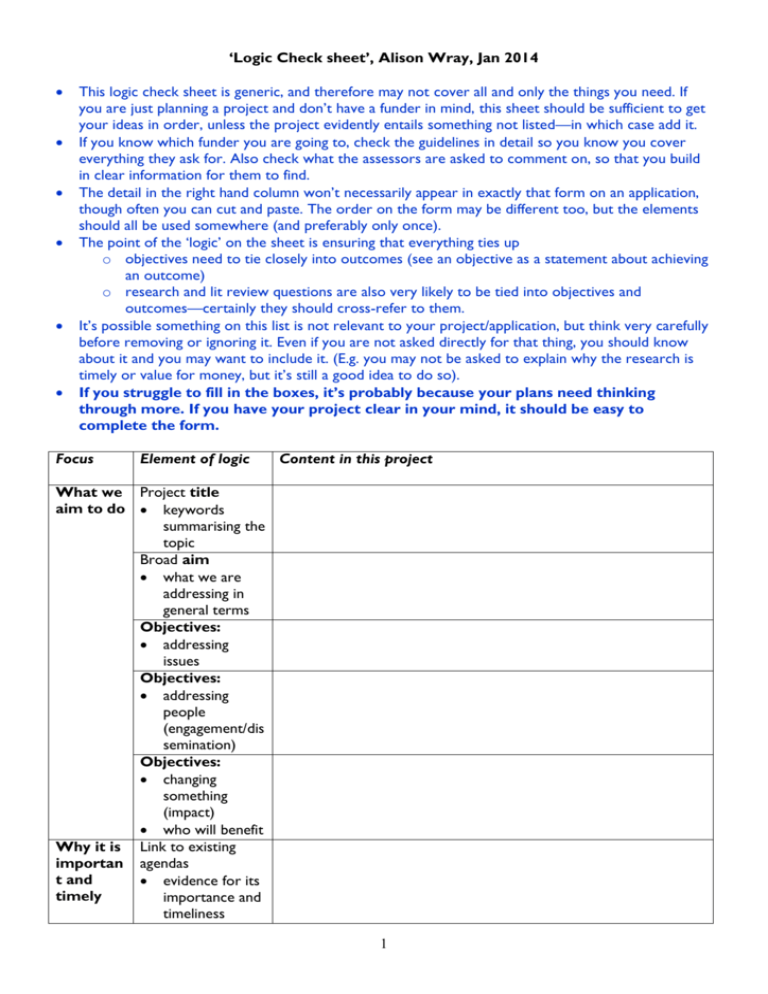
‘Logic Check sheet’, Alison Wray, Jan 2014 This logic check sheet is generic, and therefore may not cover all and only the things you need. If you are just planning a project and don’t have a funder in mind, this sheet should be sufficient to get your ideas in order, unless the project evidently entails something not listed—in which case add it. If you know which funder you are going to, check the guidelines in detail so you know you cover everything they ask for. Also check what the assessors are asked to comment on, so that you build in clear information for them to find. The detail in the right hand column won’t necessarily appear in exactly that form on an application, though often you can cut and paste. The order on the form may be different too, but the elements should all be used somewhere (and preferably only once). The point of the ‘logic’ on the sheet is ensuring that everything ties up o objectives need to tie closely into outcomes (see an objective as a statement about achieving an outcome) o research and lit review questions are also very likely to be tied into objectives and outcomes—certainly they should cross-refer to them. It’s possible something on this list is not relevant to your project/application, but think very carefully before removing or ignoring it. Even if you are not asked directly for that thing, you should know about it and you may want to include it. (E.g. you may not be asked to explain why the research is timely or value for money, but it’s still a good idea to do so). If you struggle to fill in the boxes, it’s probably because your plans need thinking through more. If you have your project clear in your mind, it should be easy to complete the form. Focus Element of logic Content in this project What we Project title aim to do keywords summarising the topic Broad aim what we are addressing in general terms Objectives: addressing issues Objectives: addressing people (engagement/dis semination) Objectives: changing something (impact) who will benefit Why it is Link to existing importan agendas t and evidence for its timely importance and timeliness 1 How we’ll do it What we will achieve Theoretical framework for addressing the central question or issue, and why this one is best Research questions: make sure they are crossreferenced to objectives above contributing to addressing the wider central issue of concern Methods specific means of achieving the objectives suitable for the target audience who will do what and why Methods of translating activities into outcomes Anticipated outcomes: projected body of data that will achieve the objectives (crossreference to each one) how the outcomes will be reported (list possible outputs) 2 How it will be useful Costs Risks & Continge ncies Impact: what value the outputs will have for the specified beneficiaries in helping them address the central question or issue of concern how this will feed into further stages Researcher costs: who works on the project and for how much time? Event costs: who organises it venue, AV and catering fees for any other presenters Travel & subsistence costs: for researchers staff for event attendees for event Value for money: why are these costs necessary? (experiment with what would happen if a cost was not there) Research What could go wrong How anticipated 3 Supporti ng info What do we want out of it Event What could go wrong How anticipated Evidence that we can do it Detail of why this is the right way to do it Foci of lit review Evidence of our credibility Direct outcomes from this Other things 4
